 Welcome! Have a seat and make yourself comfortable, we are about to start class. Psychology 101 is a general psychology text adapted to an online guided format. It represents a summary of the major theories, concepts, and interventions in the field of psychology. Reading the text will provide you with a strong basic understanding of the field of psychology. It won't make you a psychologist, but it's a great place to start.
Welcome! Have a seat and make yourself comfortable, we are about to start class. Psychology 101 is a general psychology text adapted to an online guided format. It represents a summary of the major theories, concepts, and interventions in the field of psychology. Reading the text will provide you with a strong basic understanding of the field of psychology. It won't make you a psychologist, but it's a great place to start.
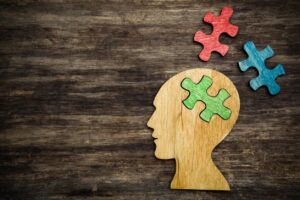
Chapter 1: How to Learn Psychology
We all use the principles of psychology everyday and probably don't even realize it. When we spank our child for doing something wrong, we are utilizing the learning principle of ...
Read More
Read More

Chapter 1.1: Influence of Research on Psychology
Psychology is not an absolute science and is often referred to as a 'Social Science' or a 'Soft Science.' This is because it deals with human thoughts, feelings, and behavior, ...
Read More
Read More

Chapter 1.2: Experimental Research
Starting from the general and moving to the more specific, the first concept we need to discuss is Theory. A theory can be defined as a "general principle proposed to ...
Read More
Read More

Chapter 1.3: Types of Research
What we've focused on is called Experimental Methods, the true experiment. It involves randomized assignment of subjects, standardized instructions, and at least one IV and one DV. There are several ...
Read More
Read More
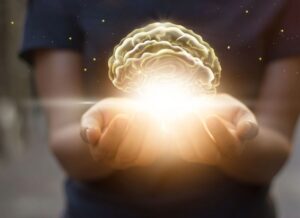
Chapter 2: Biopsychology
Most experts in the field of psychology and biology agree that the mind and the body are connected in more complex ways than we can even comprehend. Research constantly shows ...
Read More
Read More
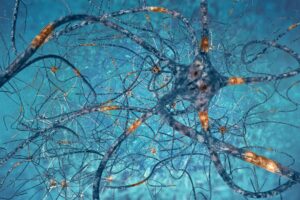
Chapter 2.1: Neurotransmitters
A Neuron is a specialized nerve cell that receives, processes, and transmits information to other cells in the body. We have a fixed number of neurons, which means they do ...
Read More
Read More
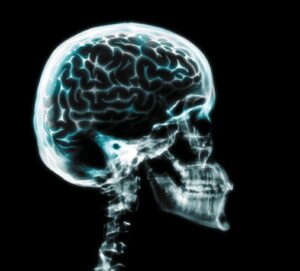
Chapter 2.2: The Brain & Nervous System
The nervous system is broken down into two major systems: Central Nervous System and Peripheral Nervous System. We'll discuss the Central Nervous System first. The Central Nervous System consists of ...
Read More
Read More

Chapter 3: Introduction to Development, Personality & Stage Theories
When discussing any type of development, most theorist break it down into specific stages. These stages are typically progressive. In other words, you must pass through one stage before you ...
Read More
Read More

Chapter 3.1: Motor & Cognitive Development
Most infants develop motor abilities in the same order and at approximately the same age. In this sense, most agree that these abilities are genetically preprogrammed within all infants. The ...
Read More
Read More

Chapter 3.2: Erikson’s Stages of Psychosocial Development
Like Piaget, Erik Erikson (1902-1994) maintained that children develop in a predetermined order. Instead of focusing on cognitive development, however, he was interested in how children socialize and how this ...
Read More
Read More

Chapter 3.3: Freud’s Stages of Psychosexual Development
Sigmund Freud (1856-1939) is probably the most well known theorist when it comes to the development of personality. Freud's Stages of Psychosexual Development are, like other stage theories, completed in ...
Read More
Read More

Chapter 3.4: Freud’s Structural & Topographical Model
Sigmund Freud's theory is quite complex and although his writings on psychosexual development set the groundwork for how our personalities developed, it was only one of five parts to his ...
Read More
Read More
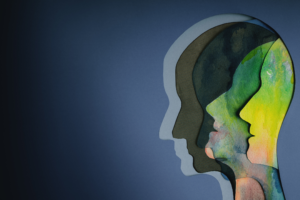
Chapter 3.5: Freud’s Ego Defense Mechanisms
Before we can talk more about this, we need to understand what drives the id, ego, and superego. According to Freud, we only have two drives; sex and aggression. In ...
Read More
Read More

Chapter 3.6: Kohlberg’s Stages of Moral Development
Although it has been questioned as to whether it applied equally to different genders and different cultures, Kohlberg's (1973) stages of moral development is the most widely cited. It breaks ...
Read More
Read More

Chapter 4: Introduction to Learning Theory & Behavioral Psychology
Learning can be defined as the process leading to relatively permanent behavioral change or potential behavioral change. In other words, as we learn, we alter the way we perceive our ...
Read More
Read More

Chapter 4.1: Classical & Operant Conditioning
One important type of learning, Classical Conditioning, was actually discovered accidentally by Ivan Pavlov (1849-1936). Pavlov was a Russian physiologist who discovered this phenomenon while doing research on digestion. His ...
Read More
Read More

Chapter 4.2: Reinforcement & Reinforcement Schedules
c The term reinforce means to strengthen, and is used in psychology to refer to any stimuli which strengthens or increases the probability of a specific response. For example, if ...
Read More
Read More

Chapter 5: Sensation & Perception
Although intimately related, sensation and perception play two complimentary but different roles in how we interpret our world. Sensation refers to the process of sensing our environment through touch, taste, ...
Read More
Read More

Chapter 5.1: Sensation
Sensation is the process by which our senses gather information and send it to the brain. A large amount of information is being sensed at any one time such as ...
Read More
Read More

Chapter 5.2: Perception
As mentioned in the introduction, perception refers to interpretation of what we take in through our senses. The way we perceive our environment is what makes us different from other ...
Read More
Read More
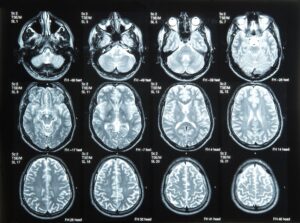
Chapter 6: Section 1: Memory, Intelligence, and States of Mind
This chapter focuses on various states of mind, how our memory works, why we forget things, the debate over intelligence and intelligence testing, and the power of the mind to ...
Read More
Read More

Chapter 6.1: Memory & Forgetting
Human memory, like memory in a computer, allows us to store information for later use. In order to do this, however, both the computer and we need to master three ...
Read More
Read More
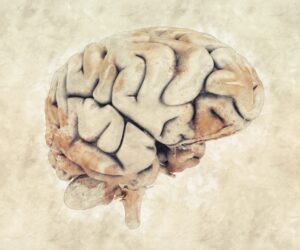
Chapter 6.2: Intelligence
The assessment of human abilities dates back nearly 4000 years when China used written tests to rate applicants for civil service. Two-thousand years later, during the Hans Dynasty, civil service ...
Read More
Read More

Chapter 6.3: Relaxation & Hypnosis
Many internal and external factors affect how we think, feel, and behave. Although alcohol and drugs have been studied in great detail and have been shown to have both positive ...
Read More
Read More

Chapter 7: Motivation & Emotion
What drives you to want to learn about psychology? Why did you choose your career? Your partner? Where you would live? Are your drives different from other people or do ...
Read More
Read More

Chapter 7.1: Motivation
Ever wonder why some people seem to be very successful, highly motivated individuals? Where does the energy, the drive, or the direction come from? Motivation is an area of psychology ...
Read More
Read More

Chapter 7.2: Emotion
What is emotion? A feeling? Then what is a feeling? These terms are difficult to define and even more difficult to understand completely. People have been attempting to understand this ...
Read More
Read More
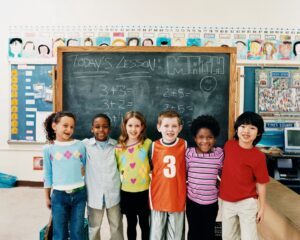
Chapter 8: Social Psychology
Everybody has heard of peer pressure, but most people argue that they are not affected by it, or at least not affected as 'most people.' The truth is, we are ...
Read More
Read More

Chapter 8.1: Our View of Self & Others
The way we look at ourselves plays an important role in how we see the world. The way we see the world plays an important role in how we see ...
Read More
Read More

Chapter 8.2: Obedience & Power
Why do we obey some people and not others? Why are you able to influence your friends? What attributes cause a person to be more influential? These questions are paramount ...
Read More
Read More
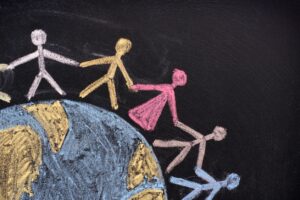
Chapter 8.3: The Role of Groups
Do you think you act differently when alone than when other people are around? The answer to this question is typically a resounding 'yes.' We are concerned with our social ...
Read More
Read More

Chapter 9: Psychopathology
By the eighteenth century we began to look at mental illness differently. It was during this time period that "madness" began to be seen as an illness beyond the control ...
Read More
Read More

Chapter 9.1: Classifying Psychopathology
Mental illness is classified today according to the Diagnostic and Statistical Manual of Mental Disorders, Fourth Edition (DSM IV), published by the American Psychiatric Association (1994). The DSM uses a ...
Read More
Read More

Chapter 9.2: Psychiatric Disorders
Let's discuss the first two axes in more detail now as these are what we typically think of when we think of mental illness or psychopathology. The DSM IV (American ...
Read More
Read More
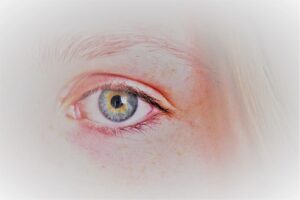
Chapter 9.3: Stigma, Stereotyping & the Mentally Ill
These are the obvious effects of mental illness, but there are less obvious effects due to the misperception of the mentally ill. Not too long ago when people heard the ...
Read More
Read More

Chapter 10: Psychotherapy
1. A positive, healthy relationship between a client or patient and a trained psychotherapist 2. Recognizable mental health issues, whether diagnosable or not 3. Agreement on the basic goals of ...
Read More
Read More

Chapter 10.1: Types of Psychotherapy
Aside from these commonalties, therapists approach clients from slightly different angles, although the ultimate goal remains the same: to help the client reduce negative symptoms, gain insight into why these ...
Read More
Read More

Chapter 10.2: Therapy Providers
We all know that medical illnesses are treated by medical professionals, namely physicians. But what we sometimes fail to realize is that there are many different types of physicians and ...
Read More
Read More

References
American Psychiatric Association (1994). Diagnostic and statistical manual of mental disorders (4th ed.). Washington DC: Author. Baddeley, A. D. (1992). Is working memory working? Quarterly Jounal of Experimental Psychology, 44A, ...
Read More
Read More
List of Chapters
- Chapter 1: How to Learn Psychology
- Chapter 2: Biopsychology
- Chapter 3: Introduction to Development, Personality & Stage Theories
- Chapter 3.1: Motor & Cognitive Development
- Chapter 3.2: Erikson’s Stages of Psychosocial Development
- Chapter 3.3: Freud’s Stages of Psychosexual Development
- Chapter 3.4: Freud’s Structural & Topographical Model
- Chapter 3.5: Freud’s Ego Defense Mechanisms
- Chapter 3.6: Kohlberg’s Stages of Moral Development
- Chapter 4: Introduction to Learning Theory & Behavioral Psychology
- Chapter 5: Sensation & Perception
- Chapter 6: Section 1: Memory, Intelligence, and States of Mind
- Chapter 7: Motivation & Emotion
- Chapter 8: Social Psychology
- Chapter 9: Psychopathology
- Chapter 10: Psychotherapy
- References
